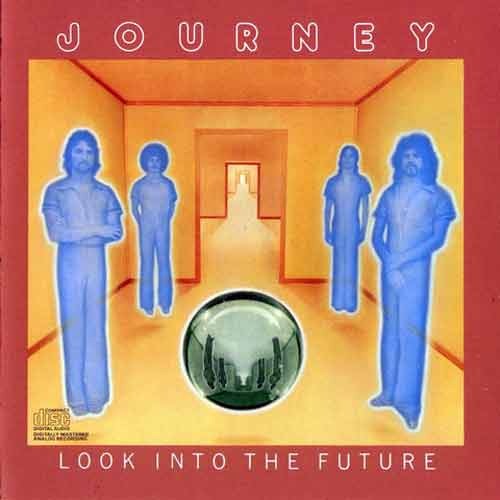
Look Into the Future (1976)

1. On a Saturday Night
2. It's All Too Much
3. Anyway
4. She Makes Me (Feel Alright)
5. You're On Your Own
6. Look Into the Future
7. Midnight Dreamer
8. I'm Gonna Leave You
Look Into the Future finds the band taking a few missteps just one album into their career. Coming off the heels of their debut, which was already a bit outside the commercial mainstream, this sophomore effort manages to feel like even more of a retreat. The band’s brand of fusion-heavy jazz-prog was never exactly radio gold, and while they had a loyal following in the Bay Area, that kind of hometown fandom doesn't always translate to lasting success.
They make some clear attempts here to veer into more accessible territory. Tracks like On a Saturday Night and She Makes Me (Feel Alright) seem like conscious efforts to court a more mainstream rock audience. It’s not a terrible strategy—bands need to eat, after all—but these songs don’t quite stick the landing. Still, credit where it’s due: their cover of The Beatles’ It’s All Too Much is a surprisingly strong rendition of an often-overlooked song. On the other hand, You’re On Your Own sounds like it’s trying a little too hard to be Beatlesque—think Abbey Road filtered through a fog machine—and ends up being more imitation than inspiration.
Thankfully, the band seems to remember who they are by the time the record hits its back half. The best moment on the album comes with the sprawling eight-minute-plus title track, Look Into the Future. It’s got all the hallmarks of their debut—atmospheric textures, exploratory solos, and enough breathing room for the musicians to show what they can really do. Midnight Dreamer is another gem, floating along with a spacey vibe and layered instrumentation that’s more about feel than form. Gregg Rolie gets to stretch out not just once but multiple times here, delivering keyboard solos that serve as a reminder of just how accomplished these players really were. Neal Schon then comes in to drive it all home with a searing solo of his own.
By this point, the band had trimmed down to a four-piece—George Tickner (rhythm guitar) had exited, though he still pops up in a few songwriting credits. His absence isn’t really felt musically, which might explain his departure. And while this record occasionally finds the group dabbling in styles that don’t quite suit them, their technical prowess never slips. The issue here isn’t performance; it’s direction. They still hadn’t quite figured out what kind of band they wanted to be, and it shows in the uneven songwriting. Still, for fans of early Journey, there’s enough here to make the trip worthwhile.
Go back to the main page
Go To Next Review